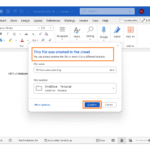Samsung to launch Project Infinity XR headset in Korea in October, with global rollout to follow

According to Korean news site NewsWorks, Samsung Electronics will launch its XR headset Project Infinity in October, beginning in South Korea before rolling it out globally
The product will pit the company against Apple and Meta in the mixed reality market. Samsung sees the device as a stepping stone towards smart glasses, which it expects to have stronger consumer appeal next year. Project Infinity will be unveiled at an Unpacked event on September 29, with sales starting on October 13.
Proton introduces emergency access to accounts

Imagine the scenario, you’re suddenly hospitalized or incapacitated following an accident but access to important information like insurance details is locked up in your computer and online accounts which no one else can access.
For this and other emergency situations Proton is launching an Emergency Access feature so that passwords and logins, documents and files will be recoverable by trusted individuals in case of an emergency.
Microsoft now saves all Word files to the cloud by default

Anyone who has used Microsoft Word for a number of years will remember the times they have been saved by the autosave feature. The move to the cloud complicated things slightly meaning that many people lost files when Microsoft changed the way the feature worked.
Now the company has announced a significant change to Word that will help to dramatically reduce the risk of documents being lost by accident or because of something like a power outage or hardware failure. All Word documents are now saved to the cloud by default.
WhatsApp rolls out AI-powered Writing Help feature

WhatsApp is getting another injection of artificial intelligence in the form of Writing Help. As you would guess from the name, this is a tool designed to help you come up with the perfect message for different scenarios.
With Writing Help being billed as something that could be of assistance in all manner of communication, there will be understandable concerns about privacy. WhatsApp is one step ahead of worried users here, pointing out that Writing Help is built on top of Private Processing technology.
Microsoft previews tool to convert virtual machines from VMware to Hyper-V

Microsoft has launched a public preview of a new tool to convert virtual machines between VMware to Hyper-V formats. The VM Conversion tool is available free of charge via the Windows Admin Center, with Microsoft claiming that the conversion process takes just five minutes.
The company says that the aim of the tool is to provide a simple, supported path for organizations to streamline VM conversion to Hyper-V virtualization environments.
Less than a third of organizations are prepared for deepfake attacks

Nearly 40 percent of organizations admit they are underprepared for AI-driven threats such as automated attacks, deepfake-based videos, and voice scams, according to new research from LevelBlue.
The new findings show that while awareness of these dangers is growing, many companies remain vulnerable and lack confidence in their ability to defend against them.
CISOs under pressure to keep data secure during AI rollouts without harming growth

IT leaders are optimistic about the value AI can deliver, but readiness is low. Many organizations still lack the security, governance and alignment needed to deploy AI responsibly.
A new study by the Ponemon Institute for OpenText finds 57 percent of CIOs, CISOs, and other IT leaders rate AI adoption as a top priority, and 54 percent are confident they can demonstrate ROI from AI initiatives. However, 53 percent say it is ‘very difficult’ or ‘extremely difficult’ to reduce AI security and legal risks.
Students expect tougher digital identity protection

As students head back to university and college and engage with more digital platforms than ever, new research shows today’s tech-savvy demographic is sounding the alarm on digital identity protection as AI-generated scams surge.
The 2025 Online Identity Study from Jumio shows students globally are both early adopters of generative AI, with 70 percent using AI to create or modify images, but also the group most exposed to its risks.
AI photography drives trend toward fewer smartphone cameras
How many cameras does your smartphone have? My iPhone 16 Pro, like the Google Pixel 10 pictured above, has four, which is above the current average according to new data from Omdia’s Smartphone Model Market Tracker 2Q25 which shows that the number of cameras in smartphones is falling.
Smartphones that shipped in the second quarter of 2025 had (on average) 3.19 lenses, which is down from 3.37 during the same period last year.
0patch will keep Office 2016 and Office 2019 secure for years after Microsoft abandons them in October

Most people know by now that October will mark the end of free security updates for Windows 10, but that’s not the only Microsoft product that will stop receiving support. In the same month, the software giant will also pull the plug on Microsoft Office 2016 and Office 2019.
Millions of users still rely on these versions at home and in workplaces, but once support stops, they are left with the choice of upgrading or running software that will become increasingly unsafe. To address this, security firm 0patch has announced that it will provide ongoing security fixes for both abandoned Office versions.
DDoS attacks dominate threats to critical infrastructure

New research from NETSCOUT looking at the DDoS attack landscape shows that this method has evolved into a precision-guided weapon of geopolitical influence capable of destabilizing critical infrastructure.
Based on monitoring of more than eight million DDoS attacks globally in the first half of 2025, the study shows hacktivist groups like NoName057(16) have orchestrated hundreds of coordinated strikes each month, targeting the communications, transportation, energy, and defence sectors.
The evolution of enterprise IT hardware: Key trends and solutions for data centers in 2025

The fastest-growing industry right now is enterprise IT hardware, which is evolving rapidly. Organizations are trying to manage processes and store data in their own way. Data centers are now under constant pressure, with all the digital transformation accelerating, and they have to deliver high performance with sustainability.
This year, IT leaders get to face challenges like exploding data demands, the need for secure, stricter energy regulations, and future-ready infrastructure. These challenges make enterprises think again about their hardware-related strategies.
How do you know if you’re dealing with a human or a bot? [Q&A]

If you’ve seen ‘Blade Runner’ you’ll know how difficult it can be to determine if someone is human or not. While that was fiction it’s worth remembering that it was set in 2019.
In 2025 and in the real world it’s becoming increasingly difficult to tell humans from bots in the online world. AI-powered bots, nearly indistinguishable from humans, are multiplying rapidly. This presents a growing nightmare for headhunters, security officers and more. We spoke to Terence Kwok, founder and CEO of blockchain identity platform Humanity Protocol, about the challenge of verifying humanity online.
LinkedIn says personal networks are trusted more than AI or search

LinkedIn says professionals are turning to their colleagues and personal contacts for advice at work, not search engines or AI tools.
New global research released by the company suggests 43 percent of workers rank personal networks above other options when they need clarity, with two-thirds saying that peers help them make decisions more confidently.
Spotify launches in-app Messages for sharing music, podcasts and audiobooks

Spotify, which three weeks ago announced plans to raise its prices again, has launched an in-app feature called Messages that gives users a new way to share music, podcasts, and audiobooks directly with friends and family. The rollout starts this week for Free and Premium users, with the company describing it as a more personal way to recommend content.
Millions of users already share tracks, shows, and audiobooks on Spotify across social media and messaging platforms. Messages will provide a central space for that sharing inside the app, while keeping external sharing options such as Instagram, WhatsApp, and TikTok intact.
Most Commented Stories
BetaNews, your source for breaking tech news, reviews, and in-depth reporting since 1998.
Regional iGaming Content
© 1998-2025 BetaNews, Inc. All Rights Reserved. About Us - Privacy Policy - Cookie Policy - Sitemap.




